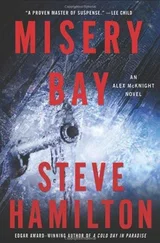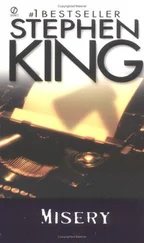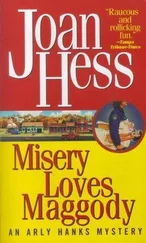Сэмуэль Шэм - Mount Misery
Здесь есть возможность читать онлайн «Сэмуэль Шэм - Mount Misery» весь текст электронной книги совершенно бесплатно (целиком полную версию без сокращений). В некоторых случаях можно слушать аудио, скачать через торрент в формате fb2 и присутствует краткое содержание. Жанр: Проза, на английском языке. Описание произведения, (предисловие) а так же отзывы посетителей доступны на портале библиотеки ЛибКат.
- Название:Mount Misery
- Автор:
- Жанр:
- Год:неизвестен
- ISBN:нет данных
- Рейтинг книги:4 / 5. Голосов: 1
-
Избранное:Добавить в избранное
- Отзывы:
-
Ваша оценка:
- 80
- 1
- 2
- 3
- 4
- 5
Mount Misery: краткое содержание, описание и аннотация
Предлагаем к чтению аннотацию, описание, краткое содержание или предисловие (зависит от того, что написал сам автор книги «Mount Misery»). Если вы не нашли необходимую информацию о книге — напишите в комментариях, мы постараемся отыскать её.
Mount Misery — читать онлайн бесплатно полную книгу (весь текст) целиком
Ниже представлен текст книги, разбитый по страницам. Система сохранения места последней прочитанной страницы, позволяет с удобством читать онлайн бесплатно книгу «Mount Misery», без необходимости каждый раз заново искать на чём Вы остановились. Поставьте закладку, и сможете в любой момент перейти на страницу, на которой закончили чтение.
Интервал:
Закладка:
"Solini?" the man cried. "Solini!"
Little Hawk opened his door, took in the situation, looked at me and winked. We ran down the hall.
"Let him go," Henry said to Mr. Telly.
"Trespassing. Eviction from Toshiba. I have my orders."
"He's a patient of mine."
"No he ain't."
"Henry," I said, "let's go for it!"
"Far out!" the little dry cleaner said, crouching into a judo posture.
We piled on top of Security, hitting at him and throwing him off Solini's reggae man. I heard Mr. Telly at my elbow calling into his walkie-talkie for reinforcements. I turned and smashed into his lapels with my two fists and lifted him up bodily and ran him across the hall and slammed him against the wall, knocking the breath out of him. His walkie-talkie fell squawking to the rug. I drop-kicked it down the corridor. Henry had karate-kicked out the other Security, who was lying there groaning, cupping his nuts.
We raised up the reggae man and walked with remarkable slowness into the restless lively rain.
"So what's up, Carter-babe?" Henry asked.
"Doc Malik," he said. The smell of cheap wine on his breath hung in the moisture all around us. 'The doc needs help."
"Where is he?" I asked.
"Follow I." We did. Carter plucked his boom box. Out came Bob's "Cornerstone." He sang along using his own translation from Psalm 118: " 'The stone which the builders refused is become the main cornerstone.' "
We walked into the Misery woods, and were soon sheltered from the hail of rain by the high spruces and cedars and pines. The wetness freshening the pine needles brought to my mind the image of the suburban Jewish bathrooms of my youth. Under our feet the dirt was springy and welcoming. Watching the tiny scion of Ideal Dry Cleaners jiving along in front of me, the gold earring back in his ear, his hands and feet rolling to the Marley, made me mimic him, and in my jiving I realized how dull and dead I had become in these months, renouncing dancing, denying mere life and mere woods and mountains pulsing with streams and rivulets. My obsession with shrinking and myself had been a weird denial of the act of living my life.
We walked on, the trail that mossy and riverly flow over rock and roots embracing rock like claws, where fallen
decaying trees nourished new red roots, spicy leaves, leafy ferns, and serious mushrooms, up hills I hadn't known were there and through miniature valleys with streams overflowing their banks and even a waterfall, ionized and resplendent I hadn't realized Misery was so immense. Like settlers fearing animals and natives, I and other shrinks had stayed close to the buildings. Soon we were soaked through. Seeing Solini's thinning black hair plastered to his bulging skull, his shirt plastered to his back so that his black hairiness showed through like fur, watching him sing and dance along happily, I joined in, feeling happy too. " 'The stone which the builders refused is become the main cornerstone.' "
We danced down the spongy path into another stretch of old-growth forest, and there, amidst the high spruce, was a dead campfire banked up with litter: empty beer and wine bottles, styrofoam cups and spoons, chicken bones, a Saran Wrap box, discarded empty bags of Korn Curls, Mars bars. Beside the campfire was a snappy bright blue tent with a Hebrew logo in white upon it.
Carter the reggae man stood aside, nodding toward the tent We went in.
A stench of stale clothes, whiskey, beer, old vomit. Curled in a corner was Malik. He was wearing a filthy short-sleeve white shirt and jeans. One foot was bare and on the other was a muddy Nike. He was snoring.
"Malik?" I said. No response. "Malik."
"Yo, Malik!" Henry said, louder.
We bent to him and shook him, and with disturbing slowness he awoke. He stared at us as if in disbelief, coughed once, and closed his eyes again.
"Come with us," I said to him.
"Get out of here."
"Hey, man, you can't do this."
"Get away."
"Listen to us-"
"Get outta here!" he snarled, sitting up and throwing us both back so we wound up sitting on our butts, facing him, our shoulders curved in by the canvas of the tent, our heads close. He was a horrible sight: thin, dirty, his eyes bloodshot and his cheeks streaked with lines that may have been dirt or may
have been the tracks of dried tears. He squinted at us, and coughed again.
"You need help," I said.
" 'Help'?" Malik stared at me. "You don't know the meaning of the word." He lay down and covered his head with his arms. Henry and I looked at each other, got up, and went out through the tent flap. We stood in the clearing.
"Think we can like carry him back?" Henry asked.
"No. Not with him fighting us. There's got to be another way."
"What, man?"
"I don't know. But Viv will."
With Carter as our guide, we walked back out through the woods.
VIV KNEW TO call Malik's sponsor George, who called right back and came right over. George was Malik's ex-patient who'd founded the Misery Loves Company meeting.
"We've got to twelve-step him," George said.
"What does that mean?" I asked.
"Go get him."
"Fine," I said, and we got up to go.
"But I gotta get someone else to help," George said, dialing a number.
"Aren't us three enough?" Henry asked.
"I need another drunk," George said. "You never go and try to bring back a drunk alone. You go with another drunk."
"Why?"
" 'Cause if you're alone with an active drunk, you may just join in. I'll call Frankie. He's workin' on the East. He'll come right over."
George called Frankie and he came right over. He was a heavyset man who looked like armies of bottles and cigarettes and frying pans and women and policemen and lawyers had marched across his face, for many years. George and Frankie popped up their umbrellas like popping open beer cans, and as the light was fading from the rain we all walked silently back into the woods, to the campground, and up to the tent.
George and Frankie went in, and Henry and I waited with Carter. We waited so long that even the Marley got stale, and we turned it off. It got dark. We lit the campfire. Carter sucked
at a bottle of Red Dog. Through the rain sounds we sat quietly, listening to the strangely gentle murmurs of men's voices inside the tent and the songs of bedding birds and maybe even an owl.
Finally, Frankie came out, and then Malik, and then George. Malik was unsteady on his feet, swaying and bumping up against the two big men, like a boy with tribal elders. He seemed surprised at the sight of the three of us sitting around the spitting campfire on our haunches like assimilated Native Americans trying to recall a few lost tribal rites.
"How are you?" Malik asked.
"Not bad, man," said Solini, "and you?"
"Not good. I'm dying."
"What?" I cried out.
"Shit!" Solini said.
"I've got lung cancer."
"How bad?" I asked, knowing that lung cancer is all bad, just death, and goddamnit it wasn't fair-Malik never even smoked.
"Bad enough," Malik said. But then he smiled, he actually smiled, and went on, "But not bad enough to drink over. Let's go."
"Where to, man?"
"Heidelberg East" He took a step, and fell down into the mud. It was pitiful. We rushed to help him to his feet. He was too weak to walk. We carried him out of the woods.
INSURANCE COVERAGE FOR Misery residents-in-training reflected the hatred Lloyal von Nott had for having any residents at all, and was as bad as was allowed by law. With a DSM of 305.02, Alcohol Abuse, Malik would be able to stay for only eight days. If we could make up a few more DSM diagnoses and slip them past the flunky docs and pimply drones of insurance, Malik could stay longer. For a stay in a psychiatric hospital, cancer didn't count. For a stay in a real hospital, cancer was a pretty good diagnosis to have. As Malik put it, crumpling into a chair on the ward that night: "I could probably stay till they treated me to death." "Be with you in a second," I said, leaving to make up a chart for him.
Читать дальшеИнтервал:
Закладка:
Похожие книги на «Mount Misery»
Представляем Вашему вниманию похожие книги на «Mount Misery» списком для выбора. Мы отобрали схожую по названию и смыслу литературу в надежде предоставить читателям больше вариантов отыскать новые, интересные, ещё непрочитанные произведения.
Обсуждение, отзывы о книге «Mount Misery» и просто собственные мнения читателей. Оставьте ваши комментарии, напишите, что Вы думаете о произведении, его смысле или главных героях. Укажите что конкретно понравилось, а что нет, и почему Вы так считаете.










